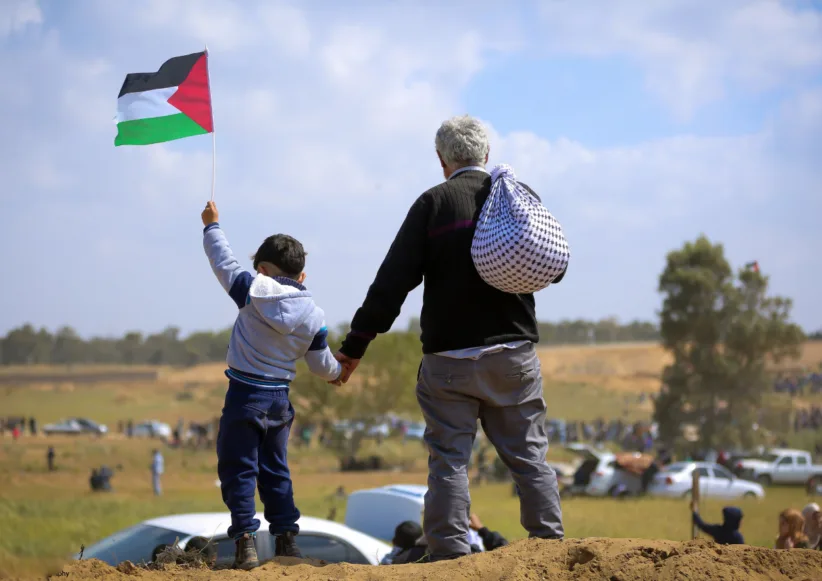Norway must help ensure that Palestinians voices are heard
This week, Norwegian Foreign Minister Espen Barth Eide participated in a meeting about Gaza at the UN. Last week, Israeli Prime Minister Benjamin Netanyahu declared the two-state solution dead. This must have consequences when it comes to which diplomatic tools Norway puts to use going forward.

For over 100 days, the people of Gaza have lived under constant bombardment. For over 100 days the world has allowed the gross violations of international law to continue. To get a lasting ceasefire in place is more than urgent. At the same time, the blockade must be lifted and the occupation must end in order to secure the rights of the Palestinian people.
People are still getting killed by the hundreds every day, while politicians, military and intelligence services in Israel, the US, the Middle East and Europe discuss what should happen to Gaza "afterwards". The discussion reveals a central feature of how the world relates to the situation in Palestine: No one is particularly concerned with the opinions of the Palestinians.
Now is the time to both think and act in new ways! Norway must contribute to ensuring that the Palestinians are heard, and that no one makes choices for them or on their behalf. This requires us daring to move forward, not backwards, when it comes to possible political solutions.
During the 30 years that have passed since the Oslo Accords, the situation in Palestine has only gotten worse. It was already unbearable before 7 October. Diplomacy has not managed to end the occupation, nor has it managed to come up with a just political solution including self-determination for the Palestinian population.
Both Norwegian authorities and private Norwegian actors are directly linked to activities in the illegal Israeli settlements which contribute to systematic violations of international law and human rights. Cutting these ties would be a clear signal that Norway assumes the end of the occupation as part of a future peaceful long-term solution.
The Norwegian population has clearly voiced their support for the civilian population in Palestine, and that they expect new tools to be put to use. They are supported by Middle East experts both in the region and in Norway. Israel's extreme use of force and blunt rejection of a Palestinian state must lead to Norway daring to use political pressure and put force behind the demands towards Israel: The occupation must stop and the blockade come to an end. Going forward, Norway needs to make it clear that international law must make up the foundation of any possible political solution, and that actual Palestinian self-determination must be ensured.
The people of Gaza must be both decision-makers and actors in the humanitarian response and the reconstruction of their land. Our partner organization have already succeeded in setting up several latrines in Rafah, the border town where over 1 million internally displaced persons sought refuge in a short time, and which now houses them in makeshift tent camps with very poor sanitary and hygiene conditions. Other partners have contributed with cash support when possible, and with psychosocial support for people who have experienced some of the worst trauma imaginable. Through social media, text messages and posters at UN schools where people have sought refuge, NPA help spread information about how civilians can try to protect themselves from explosive weapons.
Palestinian civil society organizations have never been more important than now. These are organizations that have vital experience from previous wars, are legitimate actors in the local communities and have democratic structures that enables them to engage. In the peaceful future we all want for the people of Palestine, they must therefore be guaranteed a place around the table where possible solutions are discussed and decided.
